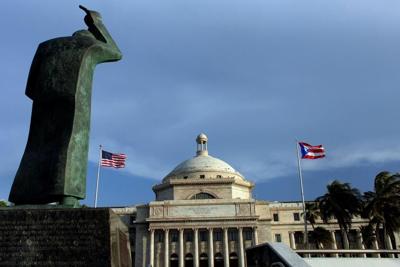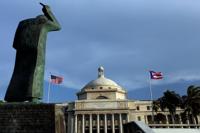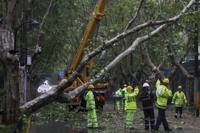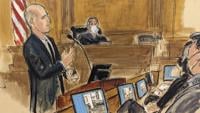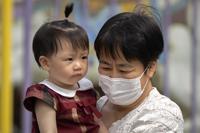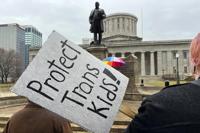SAN JUAN, Puerto Rico (AP) — Legislators in racially diverse Puerto Rico have opened a public debate on a bill to explicitly prohibit discrimination against hairstyles such as cornrows and Afros, sparking a heated debate.
Local government officials argue the legislation is unnecessary because federal and local laws already ban such discrimination. But Puerto Rican activists said at a hearing Tuesday that the island’s Afro Caribbean community still faces discrimination and needs explicit protection when it comes to public services, work, education and housing.
“I’m 23 years old, and I’m tired of this problem,” said Julia Llanos Bultrón, a teacher who wears cornrows. “I’m very disappointed with a system that pushes us to change the hair with which we’re born.”
Llanos said that a school in the northeast town of Fajardo offered her a job last year on condition that she cut her hair because they didn’t allow locks. She declined.
Similar incidents were recounted by others who spoke at a crowded public hearing held at San Juan’s seaside Capitol building, noting that the hairstyles in question are culturally important and carry historical significance.
More than 1.6 million people in the U.S. territory of 3.2 million identify as being of two or more races, while nearly 230,000 identify solely as Black, according to the U.S. Census.
Lorraine León Ramírez, mother of two sons who have Afros, said her youngest was banned from attending two different schools until he cut his hair.
“It was one of the worst experiences we’ve had as a family,” she said.
“The big question is, is it fair that our children have to grow up with regulations that undermine their identity? The answer is no,” she said. “It’s time to break these stigmas.”
A community in Texas has been grappling with a similar issue even after the state passed a law that went into effect in September to prohibit race-based hair discrimination.
The family of a Black high school student in Belvieu, Texas, is arguing that his suspension since August has been a violation of the new law. The school says that the length of Darryl George’s hair, falling below his eyebrows and ear lobes, violates the school’s dress code.
In Puerto Rico, government officials have noted that the island's laws and constitution, along with Title VII of the Civil Rights Act, protect from discrimination. But a precedent was set in 2016 when a U.S. Court of Appeals dismissed a discrimination lawsuit after finding that an employer’s no-dreadlock policy in Alabama did not violate Title VII.
During Tuesday's hearing, the co-author of the bill, Puerto Rico Sen. Ana Irma Rivera Lassén, said she didn't understand the government's position. “What is the problem with adding explicit protection?" she said.
Backing her was Puerto Rican university student Alanis Ruiz Guevara, who said she has been pushing for creation of the bill because specific hairstyles including braids, locks and Bantu knots are not covered by certain laws.
Others pushing for the bill is renowned Puerto Rican author Mayra Santos-Febres.
“All of this legal work is so important because it creates a protocol that is needed now,” she said. “We need tools to defend ourselves from systemic racism.”
Debate over the bill is expected to continue in upcoming weeks.
In the U.S. mainland, Texas and least 23 other , which stands for “Create a Respectful and Open World for Natural Hair.” It bans hairstyle discrimination within employment, housing, education and public accommodation places. The U.S. House of Representatives , but it failed in the Senate.
Some government officials in the Caribbean at schools, workplaces and government offices.

